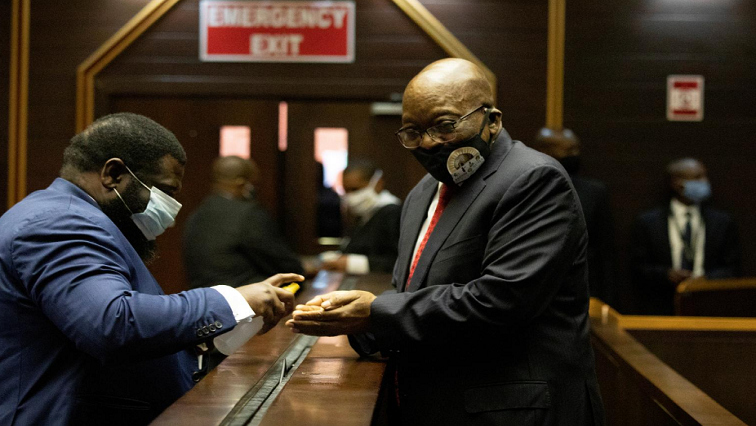The Jacob Zuma Foundation says the High Court in Pretoria will on Tuesday hear the former President’s request to appeal a ruling that set aside his medical parole and that he should return to jail.
Zuma is serving a 15-month sentence for contempt of court, after he ignored instructions from the Constitutional Court that he continue participating in the State Capture Commission.
The court said on Wednesday Zuma should go back to jail after the 79-year old began medical parole in September.
Zuma’s legal team is appealing the ruling, as is the country’s prisons department.
“Judge (Elias) Matojane has indicated his intention to hear the application for leave to appeal on Tuesday 21 December,” Zuma’s charitable foundation said on Twitter.
Zuma handed himself in on July 7 to begin his prison sentence, triggering the worst violence South Africa had seen in years as his angry supporters took to the streets.
The protests widened into looting and an outpouring of anger over the hardship and inequality that persist in South Africa 27 years after the end of apartheid. More than 300 people were killed and thousands of businesses were pillaged and razed.
The legal processes against Zuma are widely viewed as a test of post-apartheid South Africa’s ability to enforce the rule of law, particularly against powerful, well-connected people.
Medical parole
The Correctional Services Department has vowed to seek leave to appeal the court decision reversing then-commissioner Arthur Fraser’s decision to grant Zuma medical parole.
Legal analyst Mpumelelo Zikalala says the process of granting medical parole is clear and requires that the person be physically incapacitated, and the nature of illness be so severe that a person cannot be cared for within the prison facilities.
“It is not because you’re suffering from co-morbidities, in which medication for example could be taken while you’re inside the prison. So, that was the bone of contention in this particular matter, because the court is then saying, yes you do have the power to grant the medical parole. However, the reasons for granting the parole, they do not follow the course. Not by any medical evidence you decided that you’re going to grant this person the parole. Hence, they’re saying it is unlawful.” -Additional reporting by SABC






